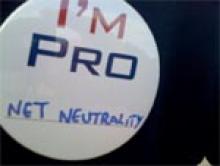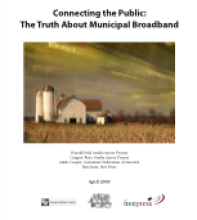Internet is Infrastructure, Not Nicety
Over the holiday break, I was visiting family in central Minnesota where they rely on dial-up for getting on the Internet. Translation: They are not on the Internet. Though I have previously said this, my experiences reminded me that nothing I do on the Internet on a daily basis is possible to do over dialup. I use gmail for my email - the delays in reading messages are intolerable and render email painful. Checking news sites is right out - they load up with all kinds of images and rich media advertisements. There is no "surfing" because it takes minutes to load a page - more like running through water than surfing over it. When I visit other family south of the metro area, I can use slow DSL - the best connection available there (at a price greater than what I pay in Saint Paul for a far faster connection) and the difference is notable - particularly when I try to send a large file to someone. When I returned home, I was ever-so-thankful for my faster cable connection... which is still far slower than options in many European or Asian countries though I pay far more than they do. Last month, Ben Scott of Free Press spoke on the NPR show "On the Media" regarding the importance of Internet access:





